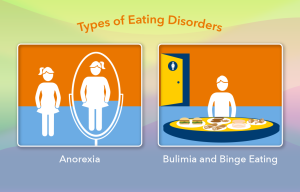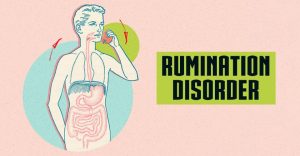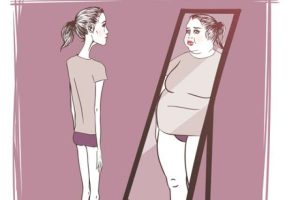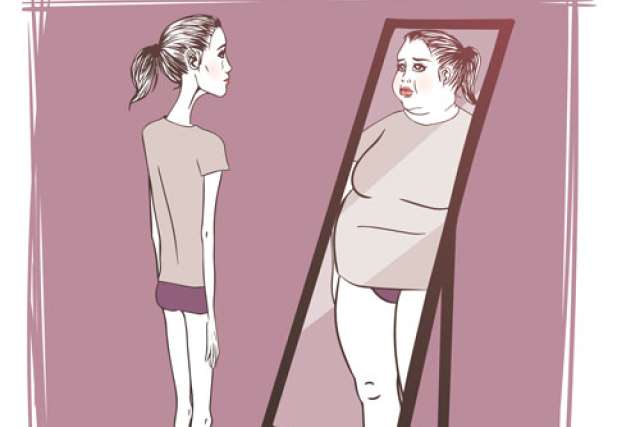Eating Disorder:
Eating disorders are behavioral conditions characterized by severe and persistent disturbance in eating behaviors and associated distressing thoughts and emotions. They can be very serious conditions affecting physical, psychological and social function.
Types of Eating Disorders:
1. Anorexia Nervosa: Anorexia nervosa is characterized by an intense fear of gaining weight and a distorted body image that leads to self-imposed starvation. Individuals with anorexia often engage in extreme dieting, excessive exercise, and may exhibit obsessive behaviors related to food and weight. This disorder can have severe physical and psychological consequences, including malnutrition, organ damage, and social withdrawal.
2. Bulimia Nervosa: Bulimia nervosa involves a cycle of binge eating followed by compensatory behaviors, such as vomiting, laxative use, or excessive exercise, to rid the body of calories consumed during the binge. Unlike anorexia, individuals with bulimia often maintain a relatively normal weight. The disorder is characterized by a sense of loss of control during binge episodes and a strong emphasis on body weight and shape.
3. Binge-Eating Disorder: Binge-eating disorder is marked by recurrent episodes of consuming large quantities of food, often rapidly and to the point of discomfort, without engaging in compensatory behaviors. Individuals with this disorder feel a lack of control during these episodes and experience shame, guilt, or distress afterward. Binge-eating disorder can lead to obesity and various health issues, including cardiovascular problems and diabetes.

Other specified feeding or eating disorder (OSFED)
These are eating disorders that don’t tick all the boxes needed to make a diagnosis such as anorexia, bulimia or binge eating disorder. It doesn’t mean they’re not as serious, or that they don’t need treatment. The mental distress they cause, and the underlying psychological problems that lead to them, are very similar. However, they show themselves in slightly different ways.
For instance, to be diagnosed with ‘classic’ bulimia or binge eating disorder, you need to binge and/or purge with a certain frequency for a set minimum length of time. Someone who binges or binges and purges in exactly the same way as someone with binge eating disorder or bulimia, but does it less often, might be diagnosed with OSFED.
Likewise, someone with the same abnormal body image and fears about gaining weight as someone with anorexia, but whose weight is not low enough for a diagnosis of anorexia, might be diagnosed with OSFED.
Conditions that can be labelled as OSFED include:
- Night eating disorder (repeated episodes of eating large quantities between supper and bed, or in the middle of the night).
- Purging disorder (similar to the purging in bulimia, but without the bingeing).
- Atypical anorexia nervosa (that doesn’t fit all the DSM-5 criteria for bulimia).
- Atypical bulimia nervosa (that doesn’t fit all the DSM-5 criteria for anorexia).
- Binge eating disorder that doesn’t fit all the DSM-5 criteria.

Pica
Pica is a very specific eating disorder which involves a compulsion to eat ‘non-nutritive substances‘ such as coal or chalk repeatedly. It must not be explained because of your age or level of development (for instance, babies are very unfussy about what they put in their mouths) or to do with cultural or social practices.

Rumination disorder
People who have rumination disorder will repeatedly regurgitate food before swallowing it again, chewing it once more or spitting it out. Some people regurgitate food because they have problems with their digestive tract: this is not counted as a rumination disorder.

Avoidant restrictive food intake disorder (ARFID)
A person with this disorder will persistently fail to eat enough to maintain their energy requirements. It is diagnosed if as a result they:
- Lose significant amounts of weight; and/or
- Become deficient in vitamins, minerals or other vital nutrients; and/or
- Are dependent on oral or tube feeding to get the nutrients they need; and/or
- Have their lives majorly affected as a result.

Orthorexia
Orthorexia is not included as an eating disorder in its own right under the DSM-5 criteria. It’s a relatively ‘new’ eating disorder first defined in 1997. People with orthorexia are obsessed with eating ‘pure’ or ‘clean’ food and often start with a desire to become generally healthier. Many psychiatrists see clear links between ‘clean eating’ and orthorexia, and have also seen many patients with orthorexia progress to develop anorexia.
As with other eating disorders, you don’t have orthorexia unless your eating is having a significant impact on your emotional well-being. You may feel unable to eat out, or to socialise with friends where food is involved. You may find yourself being judgemental about other people’s eating habits, and guilty or ‘unclean’ if you don’t follow your own, self-imposed eating rules.

Do I have an eating disorder?
The kind of questions you can ask yourself include:
- Does food dominate my life?
- Do I worry that something bad will happen if I have a lack of control over my eating?
- Do I have episodes where I feel I have lost control of my eating, then feel disgusted with myself afterwards?
- Have I lost more than a stone in the last three months?
- Do people tell me I’m thin, even though I think I’m fat?
- Do I hide myself away to eat a large amount of food, because I’m embarrassed to let anyone know what I’m eating?
- Have I taken laxatives or made myself sick because I’m uncomfortably full?

Signs of an eating disorder in a loved one
Different types of eating disorders have different features – for instance, to be diagnosed with anorexia you must be underweight. However, it’s absolutely possible to have an eating disorder without being grossly underweight. In fact, people with orthorexia are often also obsessed with being in perfect physical shape, so may be extremely fit and look very healthy.

Warning signs include
- Losing lots of weight.
- Making excuses not to eat in company.
- Wearing baggy clothes to hide their body shape.
- Secret stashes of unhealthy food or laxatives.
- Locking themselves in the bathroom after meals or at other times.
- Becoming distressed if you try to talk to them about eating.
- Being very concerned that others in the family eat lots.
- Being very fussy about their food.
- Cutting out whole food groups – gluten, lactose, any form of processed foods, animal products, etc.
- Insisting on doing the food shopping, and spending long periods looking at he food nutritional labels.
- Being short-tempered or irritable.

How to help and support someone with an eating disorder
Treatment for any eating disorder involves admitting there’s a problem, addressing the physical issues and getting intensive, often long-term, treatment for the psychological disorder that has caused it and keeps it going.
If you think someone you love has an eating disorder, being supportive is key. You need to help them to recognise that they have a serious medical condition which goes much further than food and needs medical help.
People with eating disorders are often secretive and they’re likely to be sensitive if you broach the subject. You may want to talk to their GP in confidence and get ideas on how to persuade them to seek help. Reassure them you’re ‘on their side’ – you could be their salvation.

| Eating Disorder | Description | Common Symptoms | Health Risks | Treatment |
|---|---|---|---|---|
| Anorexia Nervosa | Severe restriction of food intake, leading | Extreme weight loss, fear of gaining weight, | Malnutrition, electrolyte imbalance, organ failure, | Psychotherapy, nutritional counseling, medical monitoring |
| to significantly low body weight. | distorted body image. | osteoporosis. | ||
| Bulimia Nervosa | Recurrent episodes of binge eating | Binge eating followed by compensatory behaviors | Electrolyte imbalances, gastrointestinal issues, dental | Psychotherapy, nutritional counseling, medication |
| followed by purging or other behaviors to | (vomiting, excessive exercise, laxative use). | problems. | ||
| prevent weight gain. | ||||
| Binge Eating Disorder | Frequent episodes of consuming large | Eating large quantities of food rapidly, feeling | Obesity, cardiovascular issues, diabetes, emotional | Psychotherapy, counseling, nutritional guidance |
| amounts of food without compensatory | a lack of control during binge episodes. | distress. | ||
| behaviors. | ||||
| Avoidant/Restrictive | Limited food preferences or avoidance of | Limited food variety, weight loss or lack of | Nutritional deficiencies, impaired growth, | Nutrition counseling, psychotherapy, exposure therapy |
| Food Intake Disorder | certain foods, textures, or smells, leading | interest in eating. | emotional distress. | |
| to inadequate nutrition. | ||||
| Other Specified | Disorders that do not fit specific criteria | Variable symptoms that do not fit specific | Health risks depend on the specific disorder and | Tailored to the specific disorder, including therapy, |
| Feeding or Eating | for other eating disorders. | diagnostic criteria for other disorders. | may include physical and psychological complications. | nutritional counseling, and medical support. |




